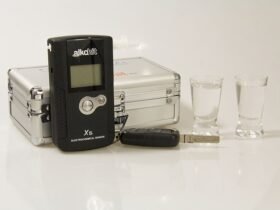Students preparing for entrance exams may get questions like – what type of blood is the universal donor? If they give wrong answers to this question, then students may lose marks. Before going into details of universal donors, first, you must understand the classifications of blood groups.
It is worth noting that there are eight blood groups – A, B, O, and AB. You inherit blood groups from your ancestors or parents. The ancient blood group is ‘A’ followed by B and O.
The variations in blood groups are due to the mutation of cells.
Click The Below Video To Know Why do we have different BLOOD GROUPS? Why Do we need Blood Transfusion?
https://youtu.be/lazxbXpsiWg
So, coming back to the point, what type of blood is the universal donor? The answer is O Negative Blood. In emergency hospitalizations that necessitate blood transfusion, type O Negative blood is given to the patient.
The patients who receive O Negative Blood during heart operations, transplantations, and surgeries will not suffer from any types of adverse reactions. That is the reason surgeons recommend O Negative Blood when there is no other alternative.
If your blood group is O Negative, you can donate blood every six months and save a patient from death.
How to become a registered blood donor?
Men and women who have the O Negative Blood group should approach one of the nearby branches of the Red Cross Society and register their names. You may have to undergo fitness, pathological, and diagnostics tests at registered labs and get a certificate that you are free from all types of diseases.
[adinserter block=”6″]
You can also register on reputed online websites that promote blood donation. Listed below are eligibility requirements to become a blood donor.
– Age criteria are 16 years and more
– Normal height-weight ratio. Underweight or overweight people cannot donate blood
– Fit, healthy and energetic
– Should not be alcoholic, drug addict, and smoker.
How many times can you give blood in a year?
Registered blood donors can donate their blood once in six months. The reason is it takes few months for the body to replace the blood. Donors should be fit and healthy while donating blood.
You may fall sick or become bedridden if you donate blood now and then.
[adinserter block=”7″]
Who should not donate blood?
People who suffer from BP, sugar, cancer, kidney, heart, and liver problems should not donate blood. If you have O Negative blood but struggle with various diseases, then you should not donate blood.
O Negative blood group members free from minor and major diseases can donate blood every 113 days.
What happens to you after the blood donation?
You may feel a bit tired after donating your blood. But you will come back to normalcy after few hours. You should drink few glasses of water and eat snacks like biscuits to gain back the lost strength. If you feel dizzy or experience nausea or side effects after donating the blood, then you should meet the doctor immediately.
A fit person will not face any side effects except slight tiredness that subsides after a point in time.
[adinserter block=”8″]


Leave a Reply